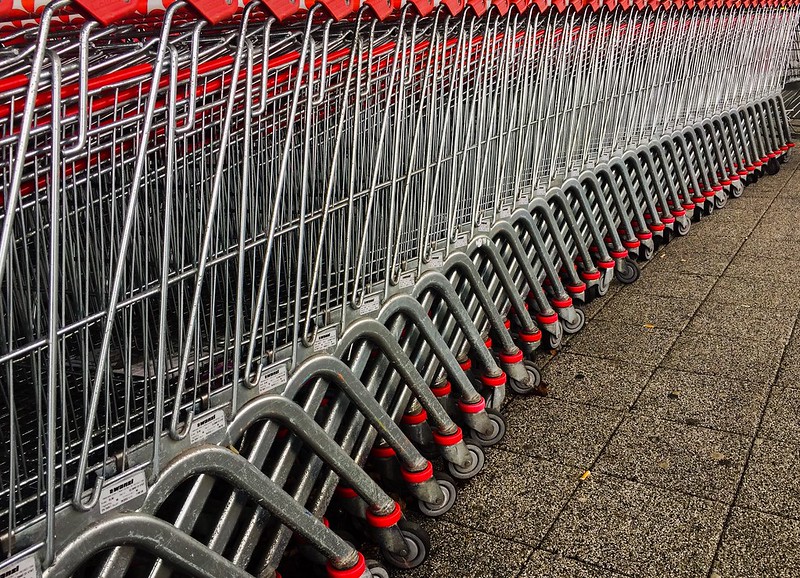Share This Article
‘New York City need not look far to increase food resources for those in need: it should incentivize grocers and restaurants to donate excess prepared food that would otherwise go to waste.’

XoMEoX
Kathryn Garcia, the New York City food czar who oversees all food programs, resigned. As we reckon with rising food insecurity, we are left without leadership to help us navigate this crisis. The mayor must appoint a new food czar as a deputy mayor immediately, who needs to implement new programs to tackle food scarcity.
Over a million residents are food-insecure in New York City, and these figures have only skyrocketed during the pandemic. COVID-19 has forced families to decide between paying rent, utilities or their medical bills, and with little to no source of income, more increasingly rely on emergency food providers.
Among those hit the hardest are hungry college students and undocumented immigrants, as the rate of food insecurity among CUNY students is 21 percent, and food experts estimate this rate to be 31 percent for undocumented immigrants. A big reason for this is that many undocumented immigrants and college students are ineligible or benefit capped for the Supplemental Nutrition Assistance Program.
Fortunately, New York City need not look far to increase food resources for those in need: it should incentivize grocers and restaurants to donate excess prepared food that would otherwise go to waste. Food makes up 18 percent of all waste, and 68 percent of discarded food is edible on any given day.
The mayor can lead by establishing a Voluntary Food Donation Program (VFDP or program), to be administered by a new food czar. Under VFDP, participating restaurants and grocers that are registered with the city would receive reduced licensing and renewal fees with the Department of Consumer & Worker Protection, if they donate food to emergency food providers, like soup kitchens, pantries, and food banks, included in an established city directory.
To participate, restaurants would be required to register, and the city would produce an online directory of emergency food providers that would like to receive donations. To receive a credit on fees, establishments would be obligated to sign a statement of participation, agreeing to stipulated terms and conditions, and produce records of donated food to the city.
Additionally, the mayor should cap fees, based on equitable factors, like establishment size or amount of food donated. Credits should be higher for smaller establishments compared to larger ones; and regardless of size, establishments should be rewarded further if they meet higher donation thresholds set forth by the city.
This program constitutes sound public policy. For example, undocumented immigrants and college students who are food insecure would access increased resources at existing soup kitchens, pantries and food banks. Food banks would see a 20 percent increase in food resources for those in need if only 5 percent of discarded foods found in scrap generators from supermarkets, restaurants, colleges, and hospitals were donated, according to the Department of Environmental Conservation.
Our environment would also dodge methane gas production that comes from food waste, and donations would help divert food scraps from landfills, reducing tens of thousands metric tons of carbon dioxide equivalents each year.
At this point, we do not know how many restaurants will participate, as indoor-dining is restricted and outdoor dining is seasonal. But it is reasonable to expect that there will be some level of participation, as establishments would receive reduced fees to fixed, not speculative, business expenses. And, make no mistake, a credit on fees is no small potatoes. At the city level, paying $280 on a Food Establishment Permit and $280 on renewal fees is significant.
All hands need to be on deck. In 2018, Council Member Mark Treygor introduced legislation that touched on a similar concept. The difference between 2018 and now is that we face an emergency of heightened proportions, and with the Council yet to take action, I call on the Mayor to implement a comprehensive food security program immediately.
I also urge Governor Cuomo to incentivize grocers, who sell packaged food, to donate by reducing fees for the Retail Food Store License, issued by the New York State Department of Agriculture and Market. At the city and state level, it would cost significantly less tax dollars to focus on incentives to donate, than purchase food outright.
Our city has rough fiscal times ahead, but we must leverage all resources. Like so many others, I was raised to never throw away God’s food, because there are too many people among us who go to sleep hungry every night.
It is time to vanquish food scarcity and hunger.
Abreu represents low-income families in Housing Court and is a candidate for City Council District 7 in Northern Manhattan.